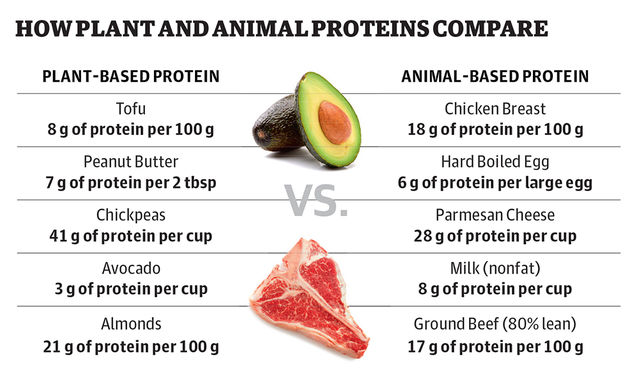The Roots Of Mental Longevity
A vegetable-based diet seeds cognitive staying power.
By Kirsi Goldynia published June 13, 2019 - last reviewed on November 18, 2019

We humans started as hunters and gatherers. Our ancient ancestors got by on plants, berries, and nuts, indulging in meats only after an exhaustive chase and kill. Over millennia, humans cultivated new food sources, domesticated land for agricultural production, and created industries with the sole purpose of obtaining animal products reliably and efficiently. Now, in the 21st century, many of us boast the luxury of accessing almost any food we desire with little to no effort.
Given an expansive array of food options, it might be expected that natural selection would have shaped the human diet, with one generation passing to the next only the nutritional preferences that best fuel mind and body. But that is not the case, particularly in industrialized countries, where meat consumption is especially robust. Still, the most nutritionally sound diets for the brain, research now shows, may resemble those our earliest ancestors foraged for.
Nutritional scientists have produced a convincing body of evidence that plant-based diets are biologically sound and largely avert such modern medical plagues as type 2 diabetes, heart disease, and colorectal cancer. Epidemiological evidence indicates that plant-based diets are also neurologically protective, keeping the aging brain youthful.
Perhaps the greatest threat to the maturing mind comes from within the brain itself. Intensely metabolically active, the brain spits out highly reactive oxygen molecules as it powers mental processes. The resulting oxidative stress and buildup of metabolic waste impair brain operations and, over time, lead to cognitive decline.
It is the role of antioxidants, found most abundantly in fruits, vegetables, nuts, and beans, to defang the rogue oxygen molecules and combat oxidative stress. No surprise, then, that plant-based diets have been documented to protect against Alzheimer’s disease and other dementias and to support psychological well-being.
One reason the Mediterranean diet is consistently linked with physical and cognitive longevity is that it largely shifts protein intake from animal to plant sources. Ditto the Okinawa diet, consumed by the world’s longest-living population, among whom dementia rates are less than half those in the U.S. Omega-3 fatty acids from fish help keep Okinawans’ minds and bodies supple, but plant proteins play a key role, too.
Exactly how do plant-based proteins aid brain function and keep the mind youthful? “That is the big question,” says Francesco Visioli, a professor of human nutrition at the University of Padova in Italy. “Even researchers can’t really say why plant proteins are apparently better than animal protein for human health.”
Without hard evidence linking plant proteins directly with cognition, scientists point to other mechanisms for the dietary benefits. The brain may prosper through cardiovascular effects such as healthy blood pressure or via avoidance of obesity.
To a degree, plant-based eating is gaining favor because it is environmentally friendlier than meat eating. But nutritionists still have concerns: Is a plant-based diet as enjoyable and satiating as a meat-based one? And can a meatless diet provide complete nutritional sustenance?
Many plant eaters maintain a link to animal protein by consuming products made to look, taste, feel, and even smell like meat. Tofu bacon, veggie burgers, and “smart dogs” attest to the appeal of meat, however mock.
Adjusting to a completely meatless menu may be neither psychologically straightforward nor nutritionally necessary. “Only animal foods contain every nutrient we need in the form we need it,” points out Georgia Ede, a Massachusetts psychiatrist who specializes in nutrition.
Vegetarians, particularly those who regularly consume legumes, nuts, and seeds, can meet their daily recommended quota of protein, but other nutrients may be lacking. Vitamin B12 is found almost exclusively in meats and other animal products; vitamin D3 is present in fatty fish; and DHA is an essential omega-3 fat found in fatty fish and the marine algae they feed on. What’s more, Ede notes, soy proteins such as tofu have estrogen-like properties, and there’s some evidence that for men, a vegetarian diet that relies on such proteins may skew hormone levels and interfere with sexual performance.
“If the world were made up only of plant-eaters who weren’t supplementing carefully, our species would psychologically and biologically deteriorate,” Ede contends. But in a meat-heavy world, shifting consumption toward plants may be the healthiest way. Ede advises those seeking the benefits of a plant-based diet to occasionally eat meat to replenish otherwise unobtainable nutrients.
But diet practices, it turns out, are as polarized as politics, and people often define themselves by what they don’t eat—meat, gluten, dairy, carbohydrates. Achieving the healthiest intake may well be a challenge to one’s identity as well as one’s larder.
There are growing signs of balance. A paleo diet nods to the hunter-gatherer way of life and has gained a huge following. It eliminates foods born from the invention of agriculture and instead relies on an array of meats, vegetables, and nuts—although in many incarnations it little resembles our ancestors’ plant-based menu.
A 2018 Neilsen survey, published in the journal Nutrients, found that 14 percent of Americans eat plant proteins predominantly—and the vast majority of them do not label themselves vegetarian, vegan, or anything. People seem to be plowing ahead on their own to honor their dietary roots.

LinkedIn Image Credit: Rawpixel.com/Shutterstock
